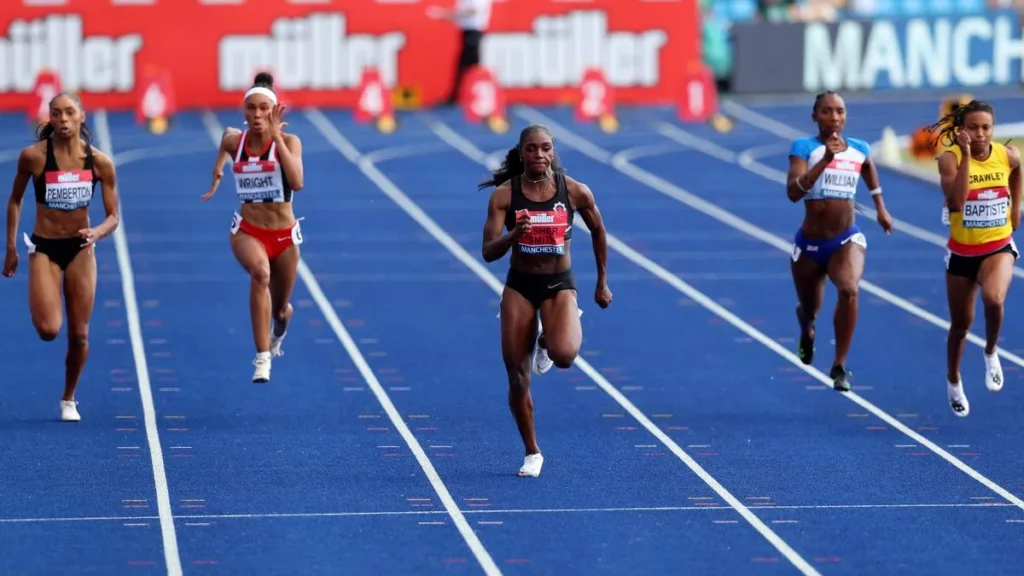Introduction
CBD (cannabidiol) has gained significant popularity for its potential therapeutic benefits and has become a topic of interest among athletes worldwide. However, when it comes to Olympic athletes, there are specific regulations and restrictions in place regarding the use of CBD. In this comprehensive guide, we will explore the rules and regulations surrounding CBD use by Olympic athletes, the potential benefits of CBD for athletes, the distinction between CBD and THC, and the implications for Olympic competition. By understanding the guidelines set by the International Olympic Committee (IOC) and the World Anti-Doping Agency (WADA), athletes can navigate the use of CBD while participating in the Olympics.
The World Anti-Doping Agency (WADA) and CBD
- WADA’s Prohibited List: Substances and Methods
- CBD’s Classification by WADA
- Clarification on THC Content in CBD Products
THC and CBD: Understanding the Difference
- Cannabinoids and Their Effects
- THC: The Psychoactive Component
- CBD: Non-Psychoactive and Potential Therapeutic Benefits
Potential Benefits of CBD for Athletes
- CBD’s Potential Effects on Pain and Inflammation
- CBD’s Potential Benefits for Sleep and Recovery
- CBD’s Potential Effects on Anxiety and Stress
Olympic Regulations on CBD Use
- The International Olympic Committee (IOC) and its Guidelines
- WADA’s Stance on CBD Use
- Allowed and Prohibited Substances during Olympic Competition
Alternative Options for Olympic Athletes
- Approved Medications and Treatments
- Natural Supplements and Non-Prohibited Methods
CBD and Post-Competition Use
- Considering CBD for Recovery and Wellness
- Compliance with Anti-Doping Policies
CBD’s Evolving Status
- Changes in Regulations and Future Possibilities
- WADA’s Continuous Review and Updates
Education and Awareness
- Athletes’ Responsibility to Stay Informed
- Consulting with Team Officials and Medical Professionals
Conclusion
- Understanding the Rules and Regulations
- Navigating CBD Use as an Olympic Athlete
Conclusion
CBD use among Olympic athletes is subject to specific regulations set by the World Anti-Doping Agency (WADA) and the International Olympic Committee (IOC). While CBD itself is not prohibited, it is important for athletes to ensure that the CBD products they use do not contain high levels of THC, which is a prohibited substance. Understanding the distinction between CBD and THC is crucial in adhering to the rules and regulations.
CBD offers potential benefits for athletes, such as pain relief, inflammation reduction, improved sleep, and stress management. However, athletes should be cautious and informed about the potential risks associated with CBD products that may contain THC or other prohibited substances.
Athletes should stay updated on the evolving status of CBD in Olympic competition, as regulations and policies may change over time. It is essential for athletes to take responsibility for their choices and consult with team officials and medical professionals to ensure compliance with anti-doping policies.
In conclusion, while Olympic athletes can use CBD, it is crucial to follow the guidelines set by WADA and the IOC. By understanding the regulations, being aware of the potential benefits and risks, and seeking guidance from professionals, athletes can make informed decisions regarding CBD use while competing in the Olympic Games.
CBD Certification and Third-Party Testing
- Ensuring the Quality and Safety of CBD Products
- Looking for CBD Products with Certifications and Lab Reports
CBD Consumption Methods for Athletes
- Sublingual Administration: CBD Oils and Tinctures
- Topical Application: CBD Creams and Balms
- Edibles and Supplements: CBD Capsules and Gummies
- Vaping and Inhalation: CBD Vape Pens and Inhalers
Potential Risks and Considerations
- Contamination and Impurity of CBD Products
- CBD Dosage and Individual Variations
- Potential Interactions with Medications
Athlete Testimonials and Experiences
- Insights from Athletes Who Have Used CBD
- Anecdotal Evidence and Personal Perspectives
Legal Considerations
- Variations in CBD Legality across Different Countries
- Compliance with Local Laws and Sporting Regulations
Education and Resources
- Accessing Reliable Information about CBD for Athletes
- Organizations and Platforms Providing CBD Education
Conclusion
- Navigating CBD Use as an Athlete
- The Importance of Research, Consultation, and Compliance
Conclusion
For athletes considering the use of CBD, it is crucial to understand the rules and regulations surrounding CBD use in their specific sport and governing bodies. Athletes should seek out high-quality CBD products that have been third-party tested and certified for purity and potency. It is also essential to consider the appropriate consumption method and dosage based on individual needs and preferences.
While CBD can offer potential benefits for athletes, there are also risks to consider, such as product contamination and potential interactions with medications. Athletes should always consult with healthcare professionals and sports officials to ensure compliance and make informed decisions.
Furthermore, staying educated and accessing reliable resources about CBD for athletes is key to understanding the latest research, legal considerations, and best practices. Various organizations and platforms provide valuable information and guidance on CBD use in sports.
In conclusion, CBD use among athletes requires careful consideration, research, and adherence to regulations. By understanding the benefits, risks, legal considerations, and best practices, athletes can make informed choices about incorporating CBD into their athletic routines while prioritizing their health, performance, and compliance with sporting regulations.

